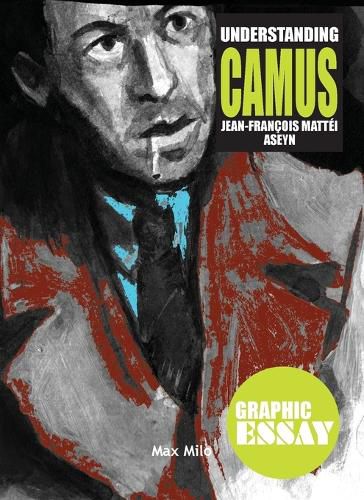Readings Newsletter
Become a Readings Member to make your shopping experience even easier.
Sign in or sign up for free!
You’re not far away from qualifying for FREE standard shipping within Australia
You’ve qualified for FREE standard shipping within Australia
The cart is loading…






This title is printed to order. This book may have been self-published. If so, we cannot guarantee the quality of the content. In the main most books will have gone through the editing process however some may not. We therefore suggest that you be aware of this before ordering this book. If in doubt check either the author or publisher’s details as we are unable to accept any returns unless they are faulty. Please contact us if you have any questions.
Albert Camus is prone to many misunderstandings. Jean-Francois Mattei seeks to dispel them by offering us an innovative reading of this philosopher's work.He shows us that it is by tackling the three cycles of his work (the absurd, revolt, love) that we can better understand his various positions: his radical rejection of the death penalty and the atomic bomb, his distrust of revolution and his stance on Algeria. The book also takes into account an intimate element in the construction of the philosopher and his thought: his love for his mother. A clear, fascinating little book for (re)discovering Camus.
$9.00 standard shipping within Australia
FREE standard shipping within Australia for orders over $100.00
Express & International shipping calculated at checkout
This title is printed to order. This book may have been self-published. If so, we cannot guarantee the quality of the content. In the main most books will have gone through the editing process however some may not. We therefore suggest that you be aware of this before ordering this book. If in doubt check either the author or publisher’s details as we are unable to accept any returns unless they are faulty. Please contact us if you have any questions.
Albert Camus is prone to many misunderstandings. Jean-Francois Mattei seeks to dispel them by offering us an innovative reading of this philosopher's work.He shows us that it is by tackling the three cycles of his work (the absurd, revolt, love) that we can better understand his various positions: his radical rejection of the death penalty and the atomic bomb, his distrust of revolution and his stance on Algeria. The book also takes into account an intimate element in the construction of the philosopher and his thought: his love for his mother. A clear, fascinating little book for (re)discovering Camus.